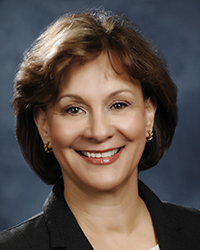Eleissa C. Lavelle

What's the most important thing you are working on right now?
I usually have a number of projects going at the same time. I am always working to improve my skill as a mediator and arbitrator and to that end, I continue to participate in training in dispute resolution (as a student and trainer), mediate the disputes that come to me at JAMS, appellate disputes through the Nevada Supreme Court Settlement program and Federal Inmate cases. These interests have led me to several other most interesting activities, including: serving on the Clark County School District Bond Oversight Committee, participating in a Working Group for Ninth Circuit Corrections, and serving on the Core Committee of settlement judges for the Nevada Supreme Court Settlement program.
How does your “day job” affect your teaching?
I am fortunate to have had a most interesting legal practice and have the chance to observe the sometimes brilliant and sometimes not so good work of lawyers and people in conflict and illustrate the principles I am discussing in class (both the Real Estate Finance and Negotiation classes) with mostly real life examples, without divulging the identities of the parties involved or factual detail that are confidential or might trigger recognition. A significant goal is to give students a confidence that as young lawyers, they may know more than might be expected. Most recently, in my Real Estate Finance class (which I have also used in Negotiation class, for other reasons), I gave an example of a claim of lender liability which I made on behalf of a general contractor, the theory of which was suggested by an associate. As a result, I succeeded in achieving a very satisfying settlement (to my client, at least). The creative associate soon after became my partner in my law practice.
How do you see the legal profession evolving in the next ten years or so?
As computerized research and AI improve and become more prevalent, I believe that much of the research and analysis of facts and law will be diverted from lawyers to computers. However, at the most fundamental level, being a lawyer is primarily about being a trusted counselor and I don’t believe that computers can ever replace that function. To that end, although it will always be necessary for lawyers to study and understand basic principles, I believe that the more creative and people oriented competencies will be even more important and, frankly, will provide for a more interesting career in the law.